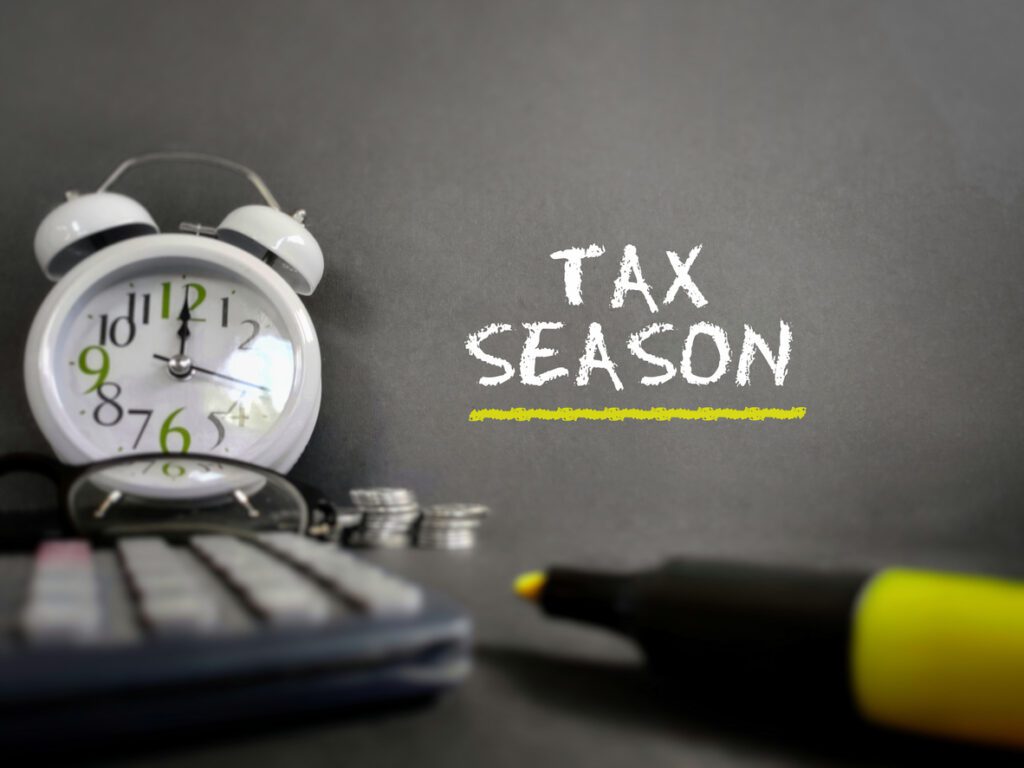

TAX SEASON: TIME TO REFLECT AND REFRESH
The start of a new year has always felt empowering. We can forget about what didn’t work last year and start with a clean slate. We make resolutions about how to improve our lives in the new year. By mid-February, many of those resolutions will be long forgotten. This year, we need to do things differently, especially regarding our finances. The current economic climate requires us to better prepare for unpredictable events.
We were forewarned about the occurrence of a recession in 2022. Since the pandemic, the inflationary roller coaster has taken us for a wild ride where we watched the average inflation rate go from 1.2% to 4.7% to 8% and is set to end 2023 with an average inflation rate of about 4%. With November’s inflation rate at 3.1%, we’re still about 1% above the optimal inflation rate. For some of us, the recession has been ongoing since 2022.
There are conflicting predictions about the economy’s direction in 2024. Some economists believe the economy is finally coming to a soft landing, while others believe the recession will hit hard and heavily in 2024. History has taught us that recessions are cyclical and have always come with a bit of pain. By this time next year, one can rest assured that we’ll have either landed or be in a recession.
As we reflect on our wins and losses for 2023, we need to pay particular attention to our financial well-being. The federal government has been able to bring inflation under control through its monetary policies, but we live in a global economy where uncontrollable outside forces can impact our economy. Proxy wars such as the Russian-Ukraine, Gaza Strip, and China-Taiwan conflicts can drain resources from third-party participants.
There are steps that we can take to save during periods of rising costs and/or unemployment. Below are a few steps we can take:
Create a budget – Creating a visual of how you are applying your after-tax income to your expenses will assist you in meeting your financial goals. Zero-based budgets, which allocate all income to expenses, savings, and debt, usually work best for most people as they allow for changes based on current needs. If you are unsure how to create a budget, there are budget apps that can be linked to your financial accounts for easier monitoring.
Diversify your income – Take inventory of your skills and create a side hustle. This can not only provide additional income for added expenses but can also lead to financial independence.
Pay off high-interest debt – high-interest rate debt increases expenses over time and should be prioritized over debt with lower interest rates. Consider negotiating a settlement with the lender to reduce interest expenses for maxed-out credit cards. When available, transfer high-interest balances to a zero-interest credit card.
Review investments – Some investments fare better than others in a sluggish economy. Review your investments for an optimal return on your investments. Treasury Inflation-Protected Securities (TIPS) offer protection against losing your initial investment.
Resist withdrawals from retirement accounts – Early withdrawals from retirement accounts are subject to stiff penalties. Consult with a financial advisor to understand the costs associated with withdrawals.
This new year promises endless possibilities. Predicting what’s to come in 2024 spoils the adventure. So, as we do our taxes and reflect on 2023, let’s also refresh to prepare for whatever 2024 has to offer.

